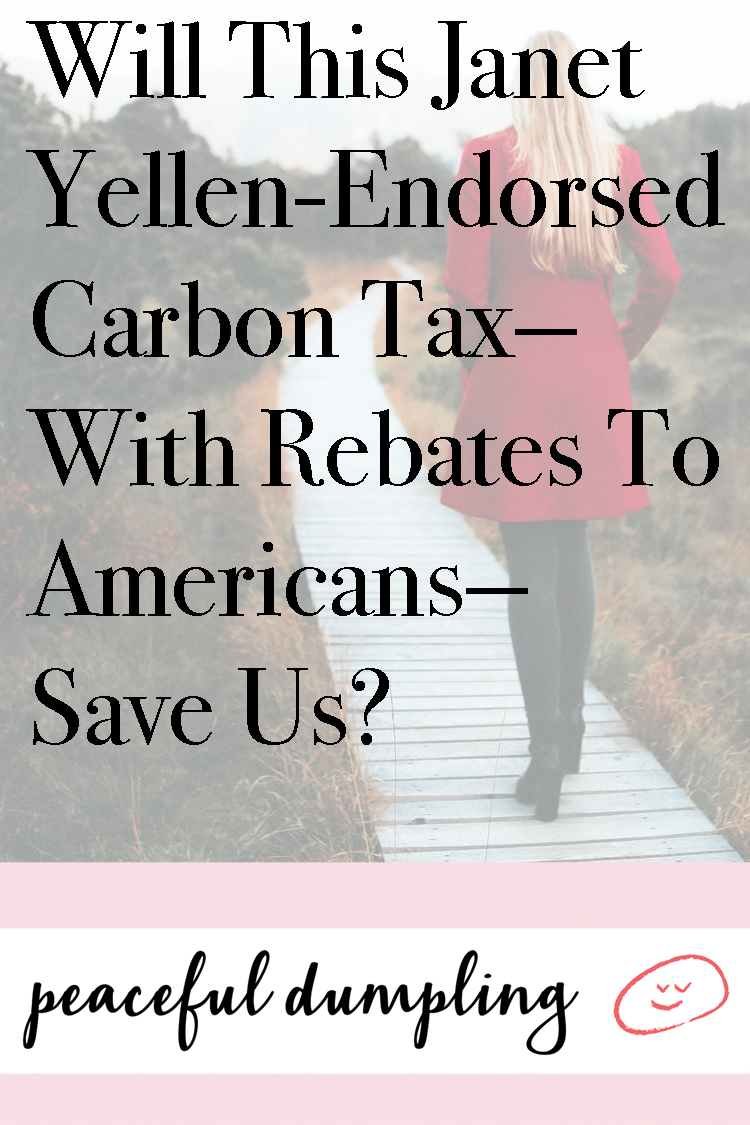 Although climate change is undoubtedly the biggest issue humanity has ever faced, it has received only a sliver of attention from both politics and civil society. At the 2016 presidential election, voters said that economy is their top concern (at 84%), followed by terrorism (80%) and foreign policy (75%). Environment was a paltry 12th place at 52%, behind even Supreme Court Appointments and Trade Policy.
Although climate change is undoubtedly the biggest issue humanity has ever faced, it has received only a sliver of attention from both politics and civil society. At the 2016 presidential election, voters said that economy is their top concern (at 84%), followed by terrorism (80%) and foreign policy (75%). Environment was a paltry 12th place at 52%, behind even Supreme Court Appointments and Trade Policy.
As such, there has been no chance of meaningful climate change legislation in years. But the former Federal Reserve Chairwoman Janet Yellen recently endorsed a plan that she calls “the most ambitious climate plan in history,” and the only politically viable one that would actually allow us to hope for an increase of <2 degrees Celsius threshold.
The Baker-Shultz plan–co-authored by former Republican Secretaries of State James Baker and George Shultz–would charge industries a carbon fee of $40 per ton, gradually to increase by 3-6% over time. Based on economic modeling, the Baker-Shultz plan would reduce CO2 emissions to 41-47% below 2005 levels by 2035.
The most striking feature of this plan is that it is supported by a broad range of industry players, including BP, ExxonMobil, Shell, GE, AT&T, Proctor & Gamble, and more, thanks to “a series of grand bargains, including trading a robust and rising carbon price for regulatory relief.” Environmental groups and political leaders from across the board have also expressed their support. In Yellen’s words, “This is the broadest coalition in U.S. history to come together in support of a concrete federal climate solution, and it continues to grow.”
But the most politically viable aspect of this proposal might be the direct rebate of the revenue to the American people. A family of four would receive about $2,000 a year, which is sure to receive voters’ support from liberals and conservatives alike. “This would allow the majority of American families to economically benefit from helping solve climate change,” Yellen writes.
But would Americans really see getting the carbon rebate as “helping solve climate change”? It’s more likely that most Americans would use the rebate without making any connection to environmental issues. It is also likely that they will not change their lifestyle habits to reduce their own emissions with this plan.
No-strings-attached income to citizens, also known as Universal Basic Income (UBI), has gained popularity through endorsements by tech entrepreneurs like Elon Musk and referendums in countries like Switzerland. But in countries with a small-scale pilot programs, the reality of UBI has not been so rosy. After much international fanfare, the UBI experiment in Finland paying €560 a month to unemployed 20-somethings was quietly shuttered in 2018 in favor of other types of social welfare programs.
Free money can temporarily boost morale (as the jobless Finns reported at the earliest stage of the UBI experiment), but it rarely, if ever, changes behavior. But why do we suppose that companies are the only ones with any effect, positive or negative, on reducing emissions? After all, Americans have as much power–and responsibility–to curb emissions, from both their lifestyle choices and purchasing decisions.
If the carbon rebate were to be awarded based on personal emissions, that may encourage people to actually cut down on their own footprint to earn more. Ways of tracking personal emissions could involve blockchain technology, or even something much simpler. After all, all our purchasing choices are already gathered and processed by Google, Facebook, Instagram, e-commerce sites, banks, utilities, and credit card companies. More than $500 a year rebate could be given to a car-less vegan with low gas and electric bills; less–perhaps $0–could be given to a meat-eating truck driver with an energy-hogging McMansion.
Despite this shortcoming, the Baker-Shultz plan is still the best chance we have of passing a meaningful climate change legislation. The deadline to “stop climate change” has already passed a long time ago. Now it is about “managing” climate change that is already here, and already affecting our livelihood, biodiversity, and ultimately, survival. The sooner the Baker-Shultz plan becomes reality, the greater our chance of securing our future.

What do you think about this proposed carbon tax?
Related: How to Reduce Your Carbon Footprint While Travelling
Police Yourself: How to Set Your Own Climate Standards (When the Law Doesn’t)
What You Can Do Now to Fight Climate Change In Your City
Get more like this—Subscribe to our daily inspirational newsletter for exclusive content!
__
Photo: Pexels




